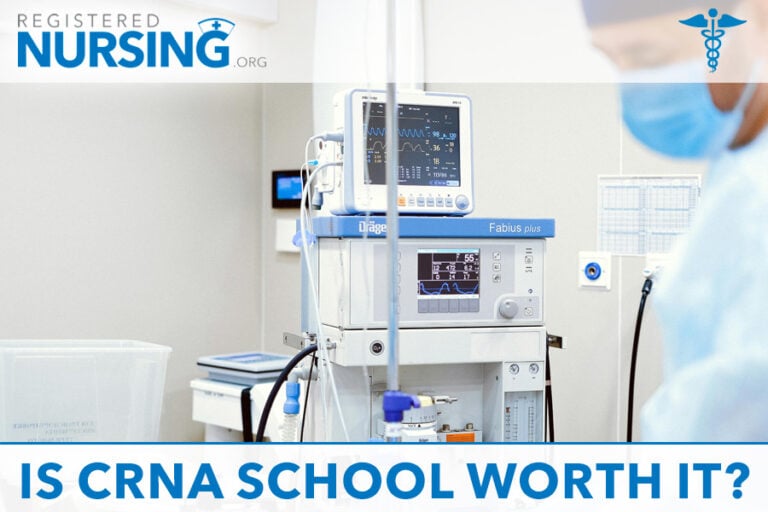Is CRNA School Worth It? ROI Analysis and Career Benefits

For registered nurses considering advanced practice careers, the question of whether CRNA school is worth the significant investment of time and money is crucial. Certified Registered Nurse Anesthetist programs require substantial commitment, but the potential returns—both financial and professional—can be transformative. This comprehensive analysis examines the return on investment and career benefits of pursuing CRNA education.
Understanding the Investment: CRNA School Costs
Before analyzing returns, it’s essential to understand the upfront investment required for CRNA education. The total cost of CRNA school typically ranges from $100,000 to $200,000, depending on the program and location. This includes tuition, fees, books, equipment, and living expenses during the program duration.
Most CRNA programs are 24 to 36 months long, during which students cannot work full-time due to intensive clinical requirements. This opportunity cost—the salary you forgo while in school—adds another $100,000 to $150,000 to the total investment, bringing the complete financial commitment to approximately $200,000 to $350,000.
While these figures may seem daunting, they represent an investment in one of nursing’s highest-paying specialties with exceptional job security and professional autonomy.
CRNA Salary Potential: The Financial Returns
The financial benefits of becoming a CRNA are substantial and immediate upon graduation. According to recent data, the average CRNA salary ranges from $180,000 to $250,000 annually, with many nurse anesthetists earning significantly more based on location and practice setting.
Geographic Salary Variations:
- High-cost metropolitan areas: $220,000 – $300,000+
- Rural and underserved regions: $200,000 – $280,000
- Average nationwide starting salary: $165,000 – $190,000
When compared to the median RN salary of approximately $75,000 to $85,000, CRNAs earn nearly three times more than their bedside nursing counterparts. This substantial salary increase typically allows graduates to recoup their educational investment within 3 to 5 years of graduation.
ROI Analysis: Breaking Down the Numbers
To determine if CRNA school is worth it, consider this simplified ROI calculation:
Scenario: Typical CRNA Graduate
- Total investment (education + opportunity cost): $275,000
- Average CRNA starting salary: $180,000
- Previous RN salary: $80,000
- Annual salary increase: $100,000
At this rate, the educational investment pays for itself in approximately 2.75 years. Over a 30-year career, the cumulative salary difference between a CRNA and RN can exceed $3 million, representing an outstanding return on the initial investment.
Long-term Financial Benefits:
- Higher lifetime earning potential
- Better retirement savings capacity
- Increased financial security and stability
- Opportunities for additional income through per diem work
Career Benefits Beyond Salary
While financial returns are compelling, CRNA school offers numerous non-monetary benefits that enhance overall career satisfaction and professional fulfillment.
Professional Autonomy and Responsibility: CRNAs enjoy significant professional independence, often working without direct physician supervision in many states. This autonomy allows for clinical decision-making and patient care management that many nurses find professionally rewarding. The ability to practice independently in rural and underserved areas provides CRNAs with unique opportunities to make substantial impacts on community healthcare access.
Diverse Practice Settings: Certified Registered Nurse Anesthetists work in various environments, including hospitals, outpatient surgery centers, dental offices, and specialty clinics. This diversity provides career flexibility and opportunities to specialize in areas such as cardiac anesthesia, pediatric anesthesia, or pain management.
Job Security and Demand: The Bureau of Labor Statistics projects nurse anesthetist employment to grow 40% through 2033, much faster than average for all occupations. This growth is driven by an aging population requiring more surgical procedures and increased access to healthcare services. The high demand ensures job security and provides leverage in salary negotiations.
Work-Life Balance Considerations: Many CRNAs enjoy better work-life balance compared to intensive care unit nurses. While call schedules exist, many positions offer predictable hours, weekends off, and reduced physical demands compared to bedside nursing. Some CRNAs work part-time or per diem schedules while maintaining high earning potential.
Factors That Impact ROI
Several factors can influence whether CRNA school is worth it for individual candidates:
Age and Career Stage: Younger nurses have more time to recoup their investment and benefit from higher earnings. However, experienced nurses bring valuable clinical skills that can enhance their CRNA education and practice.
Geographic Location: CRNAs in high-demand areas or regions with scope of practice independence often see faster ROI and higher lifetime earnings.
Program Selection: Choosing cost-effective, accredited programs while maintaining quality education can significantly improve ROI calculations.
Financial Management: Graduates who manage student loans effectively and avoid lifestyle inflation can maximize their return on investment.
Potential Drawbacks to Consider
While CRNA school offers excellent returns, prospective students should consider potential challenges:
- Intense academic and clinical demands
- Significant stress during training
- High program competitiveness
- Substantial upfront investment
- Risk of not completing the program
Making the Decision: Is CRNA School Worth It?
For most qualified candidates, CRNA school represents an excellent investment with strong financial returns and enhanced career satisfaction. The combination of high earning potential, job security, professional autonomy, and diverse practice opportunities makes nurse anesthetist education one of the most valuable advanced practice nursing paths.
However, success requires careful financial planning, academic preparation, and realistic expectations about the challenges involved. Prospective students should evaluate their personal circumstances, career goals, and financial situation before making this significant commitment.
The evidence overwhelmingly suggests that for motivated, qualified nurses willing to invest in their education, CRNA school is not only worth it—it’s potentially life-changing. The substantial return on investment, combined with the professional fulfillment of providing critical anesthesia services, makes becoming a Certified Registered Nurse Anesthetist one of nursing’s most rewarding career paths.
Latest Articles & Guides
One of the keys to success as a registered nurse is embracing lifelong learning. Our articles and guides address hot topics and current events in nursing, from education to career mobility and beyond. No matter where you are on your nursing journey, there’s an article to help you build your knowledge base.
Browse our latest articles, curated specifically for modern nurses.



